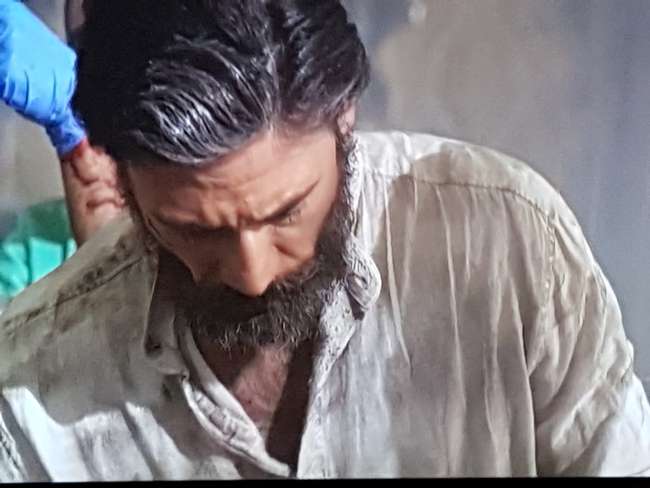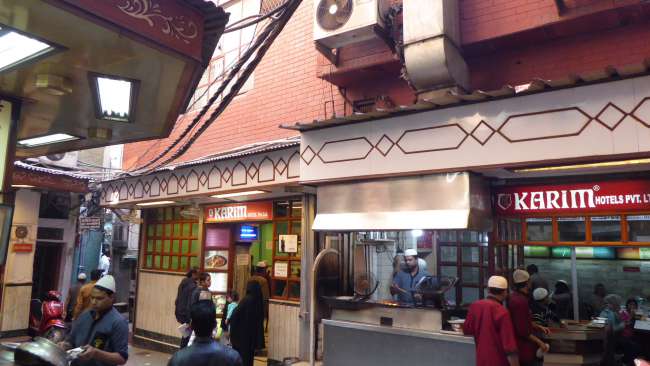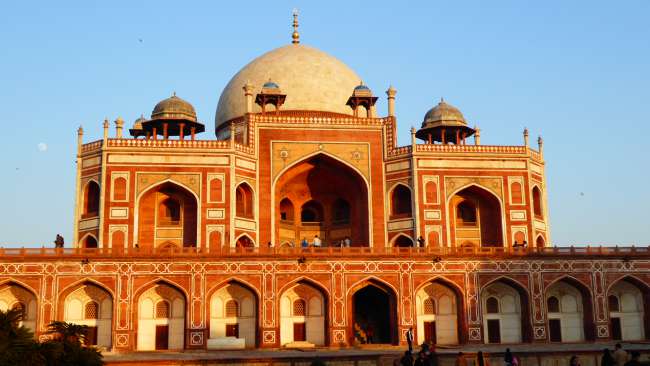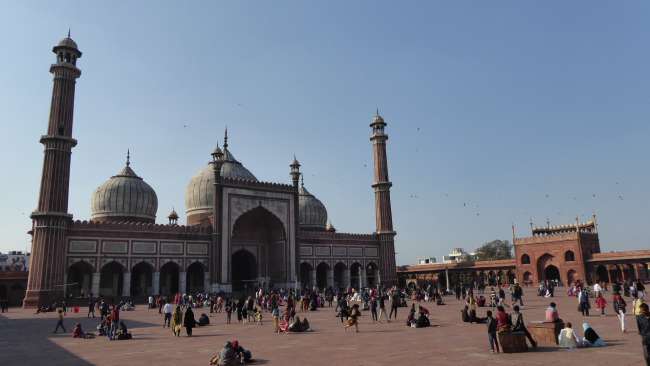Don Curry and the Indian Stew
Ishicilelwe: 10.01.2017
Bhalisela i-Newsletter
Don Curry was dead tired. What a day! His first day in India. But Don Curry hadn't cautiously approached the foreign culture of this country; he had rather plunged, so to speak, from the 10-meter diving board into the bubbling, noisy-stinking, boundless bowl of extremely rich, brightly painted Indian Stew. And if the linguistic images in this description don't match at all, then Don Curry doesn't apologize in any way. Because that's exactly how Delhi is: the city that doesn't fit together.
But let's start from the beginning: The flight with British Airways was uneventful, except that it started with a delay (20 min) and ended with an even greater delay (50 min). The fact that Don Curry's long-serving travel bag was transported last on the baggage carousel did not improve his mood either. He had been awake for almost 35 hours, maybe mitigated by some brief moments of sleep on the plane. His finely tuned diving program had long become impossible, what would the day bring?
First, he met a young Indian, Mr. Sanjeev, in a perfect tie suit, who was supposed to pick up Don Curry on behalf of the Indian travel agency. His main task was to lead him directly into the chaos of Delhi traffic. Just before the airport is a busy intersection, and it is precisely this intersection that newly arrived Indians and tourists use to stuff their suitcases into waiting taxis or family cars - mind you, in the middle of the intersection and on all lanes at the same time. The term storage space takes on a whole new meaning here. The cars forced to wait behind honk infernally, but without effect. This is exactly what Delhi's traffic looks like: unbearably loud, hectic, and devoid of reason. There are no recognizable rules - except for stopping at red lights when the police are present (which is very common in Delhi). But everything else... If you can't continue on your own track, you just drive onto the opposite track while honking loudly - and the amazing thing: the oncoming vehicles also honk loudly, but still give way. In general, the horn is the second most important part of an Indian car after the engine, nothing works without it. Pedestrians are at the bottom of the traffic hierarchy: they have no rights (because they don't have a horn either), even zebra crossings are no more than unoriginal street decorations without any meaning. Anyone who wants to take out life insurance in Delhi probably has to promise never to go on foot in their entire life. This would also explain the constant flood of cars, trucks, buses, motorcycles, tuk-tuks, and bicycle rickshaws in Delhi.
But back to the suitcase intersection at the airport. After some cell phone calls from the tie-wearing Indian, Mr. Sanjay finally arrived on the intersection with his Toyota and helped with the luggage. He would drive Don Curry through the Indian traffic madness in the coming days - a calm, friendly man with a passion for honking.
Since it was already lunchtime in India and Don Curry felt a clear hunger, he shared the following plan with the tie-wearing Indian: a quick stop at the hotel, freshen up, lunch at Karim's, and then plenty of sightseeing until evening. Although he was already dead tired at this point, he wanted to adapt to the local time conditions right on the first day. After a short consultation with Mr. Sanjay and a phone call with the guide, the tie-wearing Indian expressed his regret: No, that is not possible. Either hotel or lunch, both take too much time. Although Don Curry felt that everyone involved expected a decision in favor of the hotel, he had Mr. Sanjay head towards Karim's, or rather its vicinity.
Mr. Sanjay stopped right next to the Grand Friday Mosque, and Mr. Brahm, the guide for Delhi, joined them, while the tie-wearing Indian bid farewell. Mr. Brahm quickly hired a bicycle rickshaw, whose driver pedaled vigorously for 300 meters in the old town alleyways to Karim's.
Karim's is recommended in every guidebook because descendants of the former royal chefs still cook there according to old recipes. However, the ambience is more reminiscent of a better street food stall: a small dining room and genuine open-air kitchens on the street, where baking, grilling, and cooking were busy. Don Curry wanted to invite Mr. Brahm to lunch, but he revealed himself to be a consistent vegetarian for religious reasons... and the royals loved a rather meat-heavy diet. Don Curry ordered half portions of Chicken Burra and Chicken Jahangiri with the extra addition of 'not so spicy' when asked about the spiciness level. The result was extremely delicious but on the verge of what Don Curry's delicate palate could handle. A kind of sweet rice pudding slightly eased the inferno in his throat. It was unusual for Don Curry to eat without cutlery - typical Indian!
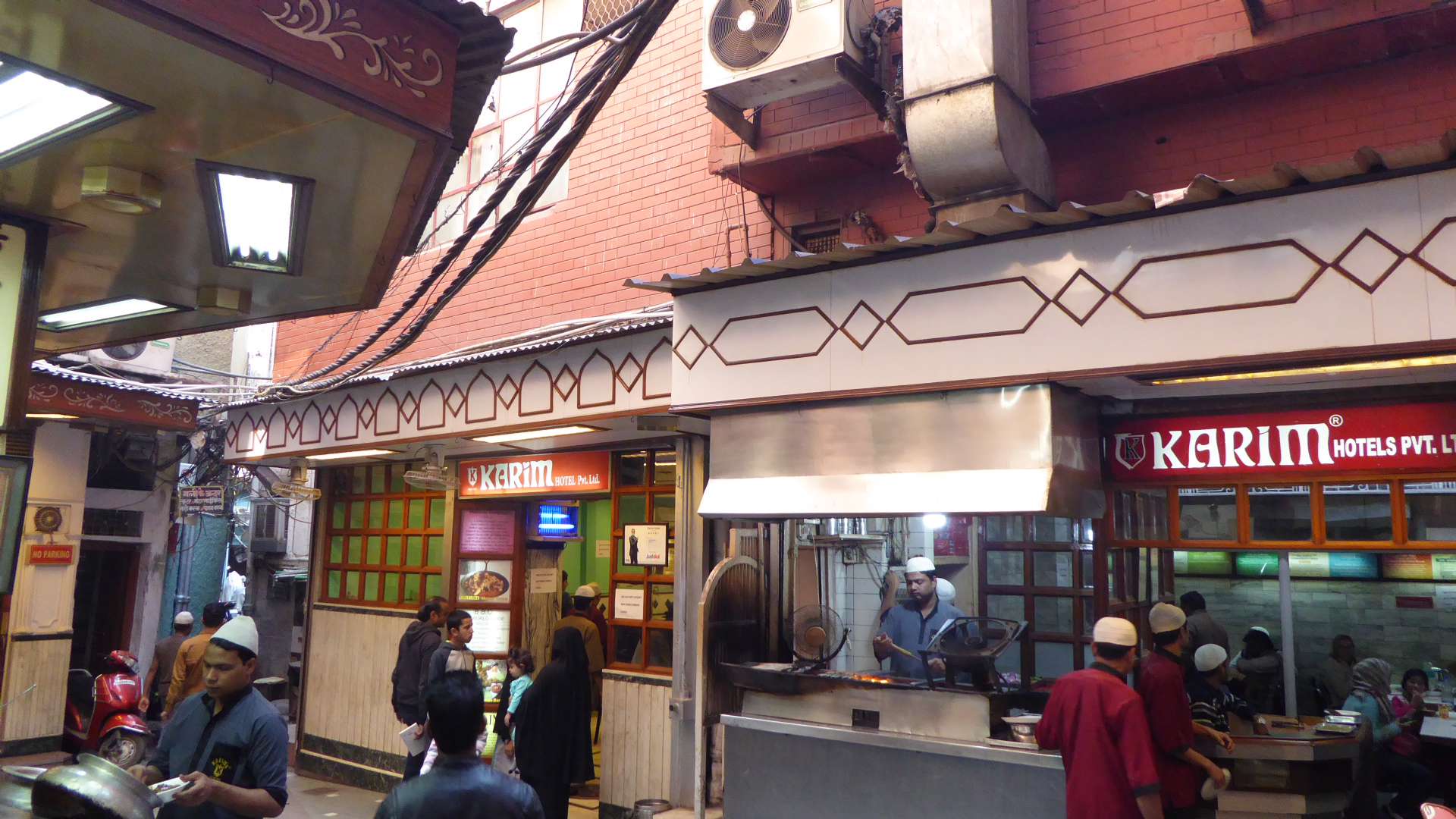
After the meal, Mr. Brahm briefly guided him through the Grand Friday Mosque, the largest mosque in India, whose courtyard can accommodate 10,000 men for Friday prayers, but now served as a lively place for family picnics and other gatherings.
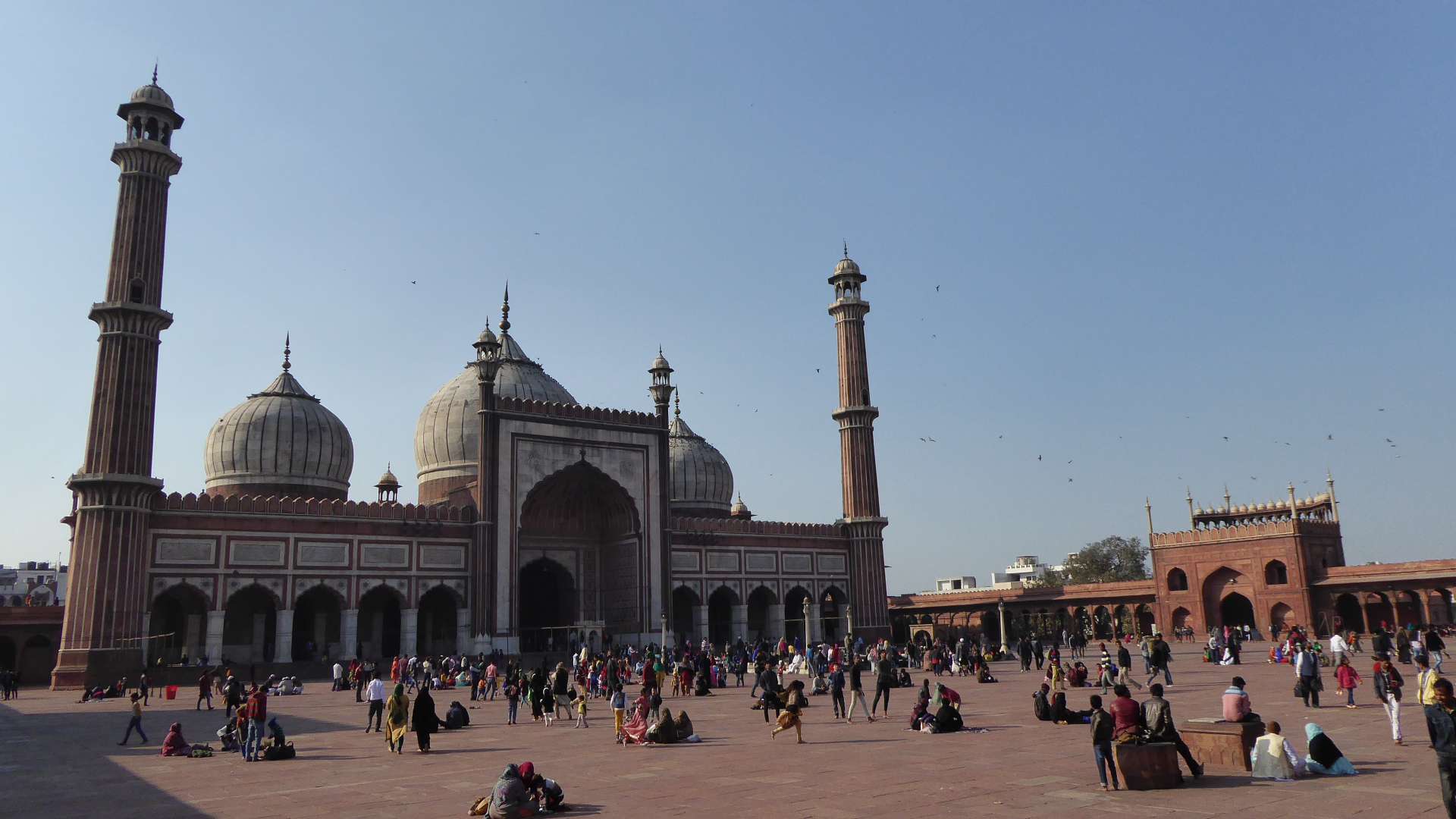
They only passed by the Red Fort in Delhi, which Don Curry regretted very much, but he quickly realized that most of the time in Delhi is spent in traffic.
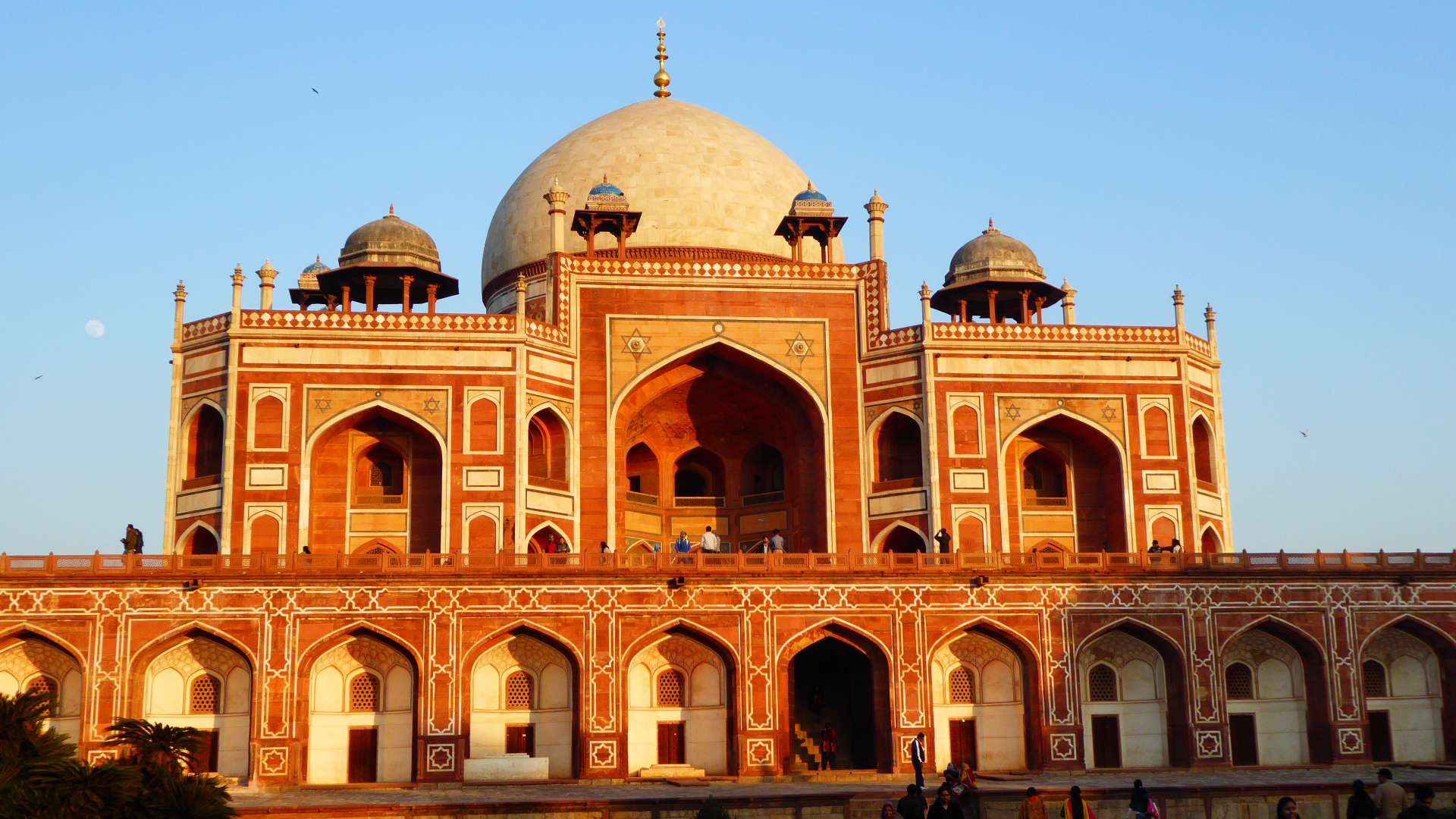
The magnificent tomb of the Mughal emperor Humayun and its surroundings were still on the program, and Mr. Brahm strongly advised Don Curry not to go to the nearby shrine of the Islamic saint Nizamuddin. But in the end, he agreed to at least take him to the entrance area of the shrine district. However, there wasn't much to see there, so Don Curry pushed forward, and Mr. Brahm resigned himself to his fate. The following alleys could have been located in the medinas of Fez or Marrakesh: an ancient labyrinth of small shops, dead animals on meat hooks, and numerous beggars. The shrine could only be approached with a head covering, but Mr. Brahm was happy to help with a handkerchief that Don Curry casually draped on his head; he was very glad that photography was prohibited there!
After this excursion into a completely different world, a Hindu temple was supposed to be visited. But when Mr. Brahm noticed that Don Curry's eyes were closing more and more frequently during his explanations, both decided to rather drive to the hotel. Passing British architectural splendors, hypermodern shopping centers, slum areas, and people simply eking out their lives under an elevated highway, they were heading for a truly pleasant surprise: when the receptionist heard that tonight would be Don Curry's first night in India, he granted him a generous room upgrade: an executive suite with a living room, bedroom, huge bathroom, and a separate guest toilet. The sumptuous dinner buffet was equally delightful, allowing Don Curry to embark on a culinary journey through India.
Afterwards, he was just tired. Dead tired...
Bhalisela i-Newsletter
Phendula
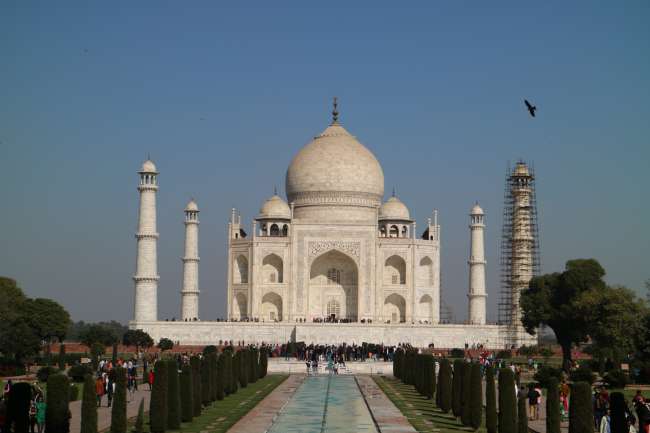
Imibiko yokuvakasha I-India

